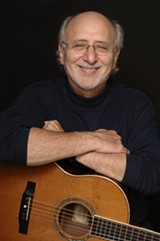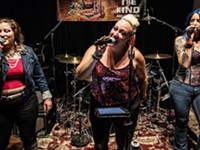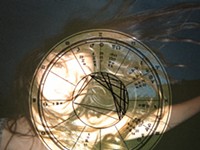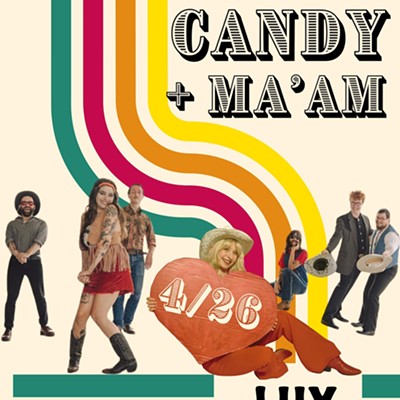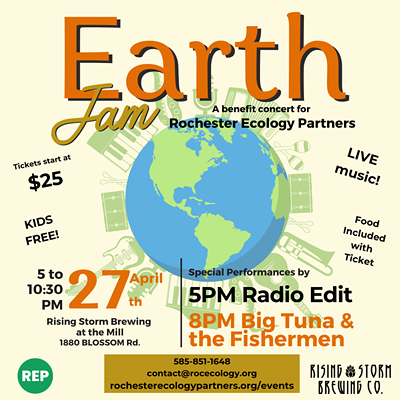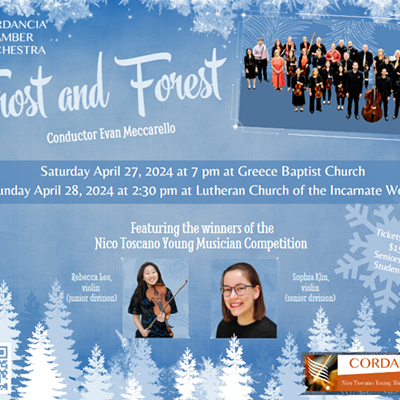[
{
"name": "500x250 Ad",
"insertPoint": "5",
"component": "15667920",
"parentWrapperClass": "",
"requiredCountToDisplay": "1"
}
]
If you came of age in the 1960's, folk singer Peter Yarrow was probably a part of your life. Before you knew the name Bob Dylan, chances are you heard Yarrow sing Dylan's most famous song, "Blowin' in the Wind."
As a member of Peter, Paul and Mary, Yarrow helped usher in a new age by injecting social activism into popular music. Tunes like "It's My Party" and "Blue Velvet" dominated the radio until Yarrow and his partners took songs like "If I Had A Hammer" to the top of the charts.
Yarrow wrote or co-wrote songs that have become classics, including "Puff, the Magic Dragon," "Day Is Done," and "The Great Mandala." In 1963, Peter, Paul & Mary — Yarrow, Noel Paul Stookey, and Mary Travers — performed at Martin Luther King Jr.'s historic March On Washington.
Yarrow will be singing all of those great songs and looking back over his long and rich career in a Golden Link Folk Song Society concert Saturday, November 4, at Hochstein Performance Hall. CITY spoke with him recently by phone. The following is an edited version of our conversation.
CITY: What elements in your early life led to your interest in folk music?
Peter Yarrow: I grew up in New York City with Russian Jewish parents, so the background that I had was very progressive politically. My mom was a member of the teachers union. By becoming a member you could lose your job. She was a member of Planned Parenthood, and she was an idealist. She voted for [1948 Progressive Party presidential nominee] Henry Wallace.
I went to the High School of Music & Art, which the movie "Fame" was based on. I was an art student. It was really a utopian environment by virtue of the fact that the only qualification to get in was your portfolio or playing a song or an instrument.
We had a lot of African-American students, a lot of Puerto Rican students, and it was an incredible exercise in living the dream of caring about each other. We couldn't wait to get back each day. The music there was folk music; we all played it. I didn't think of myself as being particularly gifted in that area — I just did it and loved it.
What was the scene like during your college years in the late-1950's?
Cornell, and all of the schools at that time, were terrible places to be in terms of what I had come to love in high school. Women were objectified, and there was the Jewish-Christian division. Anybody who was black, you wouldn't talk to them unless they were running down the football field. It was brutal and I was unhappy, but I had scholarships, so I stuck it out. But something happened in my senior year when the world was beginning to change.
In 1959, I was given the opportunity to be the instructor in a folk music course taught by the renowned professor Harold Thompson. It was a gut course that was highly popular, particularly among the pre-meds. It was in the largest lecture hall on Tuesdays and Thursdays. Dr. Thompson would talk about the music and I'd sing some songs. On Saturdays, there was no class per se, it was just a sing-along.
In the sing-alongs I saw the transformation of these students. These kids who were uptight, snotty, arrogant, clannish, prejudiced, and biased opened their hearts singing the music. It became the rage. Hundreds of people tried to cram into that place and it spilled out into the halls and became a phenomenon.
When I saw this, I saw that these kids who I really couldn't abide, had so much heart and goodness inside them. It came out when they were in that circumstance and created a certain kind of spiritual connection.
I came to believe that the world was on the brink of changing and that folk music would have a role in it and I would have a role in that. So when I graduated, I went to Greenwich Village, not to entertain people so I could get applause, but to do what I had been doing on that stage at Cornell: creating community and being a catalyst for the emergence of good things in the hearts of the people who were participating.
What was the origin of Peter, Paul and Mary?
In Greenwich Village, I played at the Café Wah? and one night Albert Grossman walked in. He heard me singing and then he walked out. I wasn't surprised. The people he worked with were Odetta, Joan Baez, and Theodore Bikel. I didn't consider myself to be anybody worthy of his consideration. But as it turned out, he did ask if he could manage me. He sent me to the preeminent coffee houses in L.A. and Chicago.
One day, he sat down with me and said, "I think you're very gifted and that's why I'm managing you, but I have an idea for a group. My concept involves you and a very strong female singer and a comedian." I bought the idea. I respected him enormously, and I'm glad I did. It would not have occurred to me.
I was with Albert at Izzy Young's Folklore Center and I looked up at the wall at all of the pictures of folk performers in the village and there was a picture of Mary Travers. I said, "Who is she?" and he said, "That's Mary Travers. She'd be great if you could get her to work." I think she was, at that point, a Village gal who really did, as she has said many times, think of Peter, Paul and Mary as a project, not taking it all that seriously.
Mary and I sang together, and we knew all the same songs. She had been in a teenage group that Pete Seeger put together called The Song Swappers. Our backgrounds were identical.
Noel [Paul Stookey] was running the scene at the Gaslight. He was a comedian and also singing. His background was not folk at all. I told Mary about Noel, and she said, "I know him; he accompanied me at the Gaslight."
Did the three of you click right away?
Mary and I went to a Lower East Side walk up, where you could probably have made a museum out of the refuse on the stairs, and walked into the loft that Noel shared with Tom Paxton. Noel didn't know folk songs, so we sang "Mary Had A Little Lamb" and no matter who took the lead it was unbelievable.
I was floored immediately. So I called up Albert and said, "This is it." We started rehearsing the next day. We did so for seven months, and then we started our four-week gig at The Bitter End. By the second night, you couldn't get in and the rest is history.
When you first heard Dylan's "Blowin' in the Wind" what was your impression of it?
It was a demo on acetate that Albert brought to the Gate of Horn when we were singing there. I listened to it and I flipped over it. I said, "This is it," and it became the only time we went into the recording studio to record a song and put it out as the single, because I absolutely knew this was it.
I came into the rehearsal with an idea for the arrangement, we put it together, we rehearsed it and recorded it. "Blowin' in the Wind" rose to number two on the charts one week before the March on Washington.
You sang "Blowin' in the Wind" at that march led by Martin Luther King Jr. in 1963. What was that like?
Mary and I held hands while he was delivering his "I Have a Dream" speech, and she said, "You know we are watching history being made."
Throughout your career you seemed to specialize in meaningful songs.
People have said to us many, many times, "You were the soundtrack of my coming-of-age, my awareness of who I might be as a responsible person in society." They always say, "your music was" — and by "your music" I assume they mean Bob Dylan, Joan Baez, Judy Collins, etc.
We were writing in the idiom of folk music. A lot of our songs in the beginning were traditional, but we also started singing songs written by other people who were unknown, like Gordon Lightfoot, John Denver, and Laura Nyro. We were interested in this music as a catalyst for creating community and uniting people's hearts and spirits in the service of doing something that could make the world a better place.
When you wrote "Puff, the Magic Dragon" what were you thinking?
I wrote it with Lenny Lipton, who started it with an incomplete poem that he left in a typewriter in my room during finals. I took that and added the lyrics to it and I added music. I didn't shape the original concept of it. What I shaped was the idea that a dragon lives forever, but not so little girls and boys. But it was just a whimsical story, and there's a lot of sorrow and sadness and loss in my psyche and history and songwriting and that was injected into it.
How did you react to the marijuana controversy that swirled around it for a while?
Well, not for a while; there are still some countries where it's not allowed to be played because they went for it. It's outrageous, but there's nothing you can do about it. They also named a bomber that was used in El Salvador and Vietnam "Puff, the Magic Dragon." You just have to understand that at a certain point it doesn't belong to you. You can't control how people look at it or its use.
What are your concerts like today?
The concert is the Peter, Paul and Mary repertoire. That's my music plus some more recent songs, but they are framed in introductions that place them in the context of their history or for today. And for the second half, I take requests from people and sing what the audience would like me to sing.
How did you feel when Mary died?
It was a huge loss, and I always bring her to the concerts by having the audience sing "Leaving on a Jet Plane" with me. I speak about her because you're not together with somebody for 50 years without really completing each other's thoughts and sentences.
You still play with Noel occasionally.
Yes, we still do and we enjoy it enormously.
You founded Operation Respect and you've been involved in anti-bullying for a long time. What kind of activism are you involved in now?
That's really been my main work for the past 20 years, but I'm also involved in something now called Better Angels and it's all about bringing America together across the divide and realizing that the vast majority of Americans, as vitriolically divided as they are, really are good people that want the best for their country.
We shot a documentary in Lebanon, Ohio. We had eight red-leaning people and eight blue-leaning people spend a weekend together. Out of that association came an amazing realization that they liked each other. People who they thought would be incorrigible or to whom they couldn't speak civilly were not that at all.
Speaking of...
-
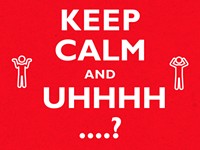
Calendar preview: Keep calm and...
Nov 5, 2020 -
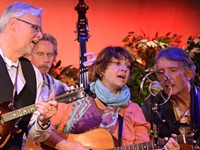
FOLK | Virtual Turtle Hill Folk Festival
Sep 9, 2020 -
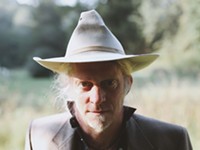
Interview: Jimbo Mathus
Nov 11, 2019 - More »
Latest in Music Features
More by Ron Netsky
-
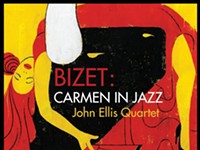
Album Review | 'Bizet: Carmen in Jazz'
Mar 26, 2024 -
'To Swing Is the Thing" by Mike Melito
Aug 10, 2023 - More »
